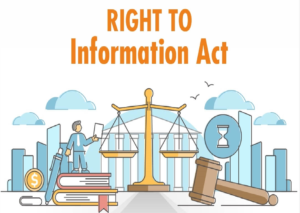Sending Legal notices in India
A legal notice is a formal communication sent to an opponent or a legal entity indicating that the aggrieved party is preparing to file a lawsuit if the demands mentioned in the notice are not fulfilled. It is usually issued by an advocate appointed by the victim, for the purpose of soliciting a settlement. Common reasons for sending a legal notice include property-related disputes, employment-related issues, violation of HR policies, manufacturing or providing of contaminated/low-standard products, cheque bounce, and personal conflicts.
If you receive a legal notice, it is important to reply within the stipulated time to avoid any adverse consequences. After reading the notice carefully, it is advisable to contact a lawyer for guidance and provide them with all the relevant information related to the issue. The lawyer will then draft a proper reply on your behalf and send it through registered post or courier.
A legal notice serves as a warning and ensures that the offender is made aware of their duties and the consequences of non-compliance. It also provides an opportunity for the parties to negotiate and resolve the dispute amicably, without the need for litigation.
Sending a legal notice or receiving one can be a stressful and overwhelming experience. It is important to understand the legal process involved in sending a legal notice and responding to it. Here is a guide on sending legal notice and reply to a notice in India:
Sending a Legal Notice:
A legal notice is a formal communication sent by one party to another, stating the legal action that may be taken if certain demands are not met. The notice can be sent by an individual or a lawyer on their behalf.
The notice must contain the following details:
- Name and address of the sender and receiver
- Facts of the case
- Demands being made by the sender
- Consequences of non-compliance
The notice must be sent through registered post with acknowledgement due, or through an authorized courier service, to ensure proof of delivery.
It is important to note that a legal notice must be sent within the prescribed limitation period, which varies depending on the nature of the dispute.
Replying to a Legal Notice:
If you receive a legal notice, it is important to respond to it in a timely and appropriate manner. Failure to respond can result in legal action being taken against you.
The reply must be sent within the stipulated time mentioned in the legal notice. The reply should include:
- Name and address of the sender and receiver
- Response to the allegations made in the notice
- Supporting documents or evidence, if any
- Counterclaims or demands, if any
The reply should be sent through registered post with acknowledgement due, or through an authorized courier service, to ensure proof of delivery.
It is important to seek legal advice before responding to a legal notice, as a poorly drafted reply can weaken your case.
Sending a legal notice or receiving one can be a complex process, requiring legal expertise and understanding of the relevant laws and regulations. Seeking legal advice before sending or responding to a legal notice can ensure that your rights are protected and your interests are represented in the best possible manner.
How we work?
Fill the form
1
Make the payment
2
Get a call from concerned lawyer
3
Lawyer will analyse your case carefully
4
You will get expert advice from the lawyer
5
Legal Expertise Areas
Civil & Property
- Send a Demand Notice
- Send a Legal Document
- Review Property Papers
- Draft Agreement
- Delay In Possession
- Builder Dispute
- Property Disputes
- Removal of Copyright Objection
- Partition Suit
- Declaration Suit
- Money Recovery suit
Family & Matrimony Advice
- Divorce & Separation
- Domestic Violence
- Cheating Partner
- Consultation on Family Matters
Banking & Corporate Matters
- Sec138- Cheque Bounce
- Bankruptcy
- Insolvency
- Banking Fraud Cases
Employment & Labor Matters
- Sexual Harassment at workplace
- Employment & Salary Issue
- Maternity
- Wrongful Termination
Our Legal Notices package includes:
- Consultation from Experienced Lawyer
- Drafting of Notice
- Filing and sending Notice
Ask an Expert
Trusted by Trusted brands across the globe







In Media




























